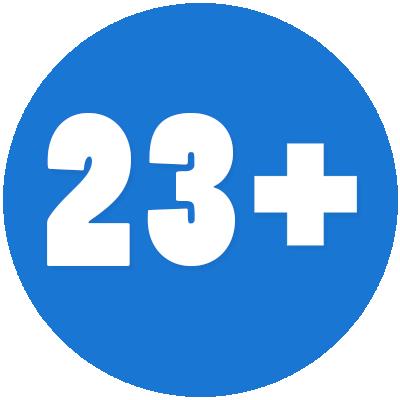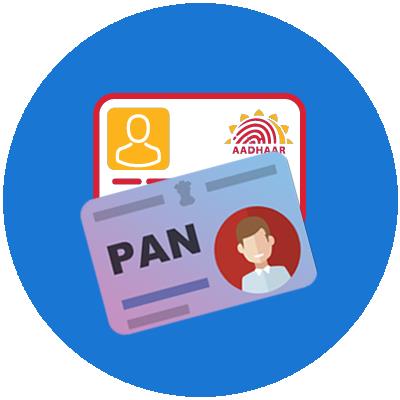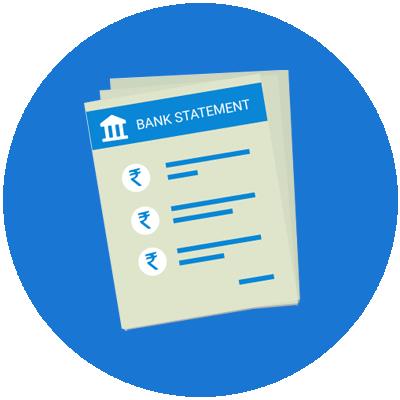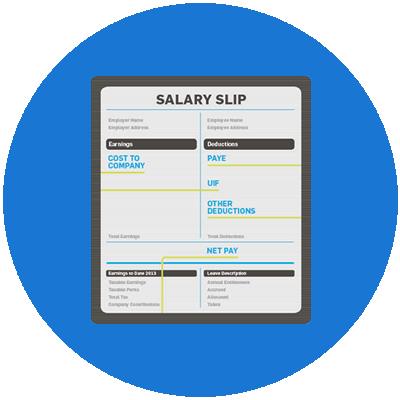Apply Now!
Basic Eligibility Criteria
 Good Credit Score
Good Credit Score Above 23 Years of Age
Above 23 Years of Age Valid Bank Account
Valid Bank Account Resident of India
Resident of India Self-Employed or Salaried Professional
Self-Employed or Salaried Professional Aadhar Card , Voter ID / Driving License and PAN Card
Aadhar Card , Voter ID / Driving License and PAN Card Bank Statements for The Last Three Months
Bank Statements for The Last Three Months Salary Slips for The Last Three Months
Salary Slips for The Last Three MonthsWhat is a Home Loan?
Buying your own home has always been a huge part of the Indian Dream and it is always a good idea to buy property, either as an investment or as a place to live. But it is also a big investment and more often than not, it is better to purchase it by availing the facility of a home loan. This allows you to avail tax breaks as well as allows you to pay the loan back in different ways based on the terms of the loan while purchasing.
Housing loans are mainly of two types, fixed and floating. Fixed loans have a higher down payment but the period of repayment is longer and interest rate are fixed. This usually translates to lower monthly payments and insulation against the possibility that interest rates may rise in the future. Conversely the floating rate may have a lower rate of interest initially but then the interest rates may be revised after some fixed period and then the rates may be revised periodically.
Moreover, there are certain charges that banks apply like the prepayment charges, processing fees, pre closure fees and some others, depending on the bank issuing the loan.
Why should I get a Home Loan?
Property as an investment has been one of the fastest growing investment opportunities for a number of people looking for a long term investment at a good rate of return. However, as the property rates keep climbing each year, it is getting more and more difficult for regular folk to cough up the entire amount needed to purchase a house upfront. This is where home loans step in and save the day for countless numbers of people who could probably never afford to buy real estate otherwise.
In a lot of families it is considered a necessity to have a home soon after you start your career and as such it is not always likely that you can afford to pay up the entire amount needed to purchase it upfront. In such cases, the banks help you by stepping in and paying up to eighty percent of the purchase cost that you need to pay them back with some rate of interest over a suitably long period of time.
This serves as a great deal for both the parties involved as the bank earns a decent interest on the amount loaned over a long period of time and you, as the customer gain ownership of your own property that you need to pay for back in small amounts over time, while still getting tax benefits and maybe even a secondary income source if you put it up for rent.
What are the features of a Home Loan?
The features of your particular home loan depends on your agreement with the bank. However based on RBI guidelines and the common features across home loans offered by banks, here are a set of common features regarding home loans:
- Interest rates for housing loans are of two types, floating or fixed or a mixture of the two types. In a fixed rate loan, the rate of interest is fixed for the duration of the loan and cannot be changed. In the case of floating interest rates, the banks adjust the interest rate at fixed intervals, for example annually. This adjustment can increase or decrease your interest rate depending on a wide variety of factors and can be risky if your luck is bad.
- As property purchase is a capital intensive venture, the money put in by the banks is substantial as compared to other types of loans and the repayment period is also one of the longest compared to other types of loans.
- Housing loans can be availed irrespective of whether you are availing the loan to buy a house to reside in or for investment purposes.
- Home loans are usually given against some sort of collateral. This means that in case you default on the loan repayment, the bank reserves the right to seize your property or collateral to recover its dues.
- Other than the principal amount and the interest charged on that, the housing loans also attract a set of processing fees and other one time charges that are levied by the bank at the time the application is being processed.
- Earlier, prepayment of the loans used to attract some prepayment fees but allowed you to reduce the liability as and when you could do so. However, most banks today have waived off such charges, making it extremely convenient to pay off these loans whenever you choose to.
- The EMI paid on these loans are tax deductible under IT Act 1961, making them a great option as an investment.
Am I eligible for a Home Loan?
Home Loans are a large investment and require collateral by the bank. Moreover each bank has a different set of requirements as they deem necessary for applicants and as such your experience may vary across banks.
- Proof of Employment is important as the loan is given on the assumption that you can repay the loan amount comfortably. In case of self employed businessmen the requirements are slightly different and you need to have had the business for at least three years or more and in case of salaried employees the person needs to have been working for a minimum of three years of which one year is at the current employers office.
- Age proof will be necessary while applying for a home loan. You need to be at least 21 years of age to apply for the loan and the loan term should end before you reach the age of 60.
- Income Proof is asked by banks to show that you have the ability to pay back the loan amount. It depends on the bank and the amount you are planning to take a loan for but a minimum income of somewhere between five to eight lakhs would be advisable to ensure you can get the loan.
- Banks will also check your credit rating to verify that you have a good financial background and are going to be able to pay back the loan. This is extremely important to the institution authorizing the loan and a bad credit rating can lead to your loan application being rejected.
- Residential proof is asked by banks to verify that you are visibly settled well in terms of your work and should show at least one year of residency in the same location to qualify for the home loan.
- Any other outstanding debts and liabilities need to be declared to ensure that the bank can verify your ability to repay the housing loan if approved. Depending on the pre existing liabilities of the customer the bank decides how much they are willing to loan them.
What are the documents I need to apply for a Home Loan?
Depending on the bank that you apply to, the list of documents that you are asked to submit may differ. Most banks however, will ask you to at least provide the following documents when you apply for a home loan and so you should keep these handy while applying.
- Keep any Government issued Identity proof like a passport or a driving license with you.
- Proof of Residence for your address as filled into the form.
- Proof of Income like a salary certificate from your employer.
- Bank statement for the last six months or pass book entries for the same.
- List of your personal assets and any liabilities you have undertaken.
- Copy of your income tax returns for the last 2 or 3 years, depending on whether you are a salaried employee or self employed.
Why Should I go for BankingOnTips for my Home Loan needs?
We at BankingOnTips are committed to helping you find the perfect home loan that suits your requirements best from a wide range of possible options based on various factors like type of interest, different interest rates, type of loan and many more. We try and show you the loans that you may be eligible for and help you to compare and contrast them to find the one that suits you best and once you zero in and decide to apply for one, we will direct you to the concerned bank’s website for application request and further formalities.
- We provide you with all the details regarding the loan you are considering through on our portal and are committed to keeping the most up to date information on our website, so you don't have to face any unpleasant hidden surprises later.
- Comparison of different loans and their subsequent terms and conditions is a huge hassle and used to require going through the websites of different banks and reading over pages of terms and conditions to find the best one for you. We try to simplify this process as much as possible by giving you an easy way to compare the options across multiple different providers and letting you find the best one as per your needs.
FAQs
Home loan is a monetary assistance you get from banks to buy yourself and your family a house. You need to repay the amount either in equal installments or EMIs along with interest and other legal taxes.
Yes, most of the times, you have to physically visit the bank/loan issuer for the home loan application process. Also, banks send their representatives to you in some cases.
Not particularly. You get 80-85% of the total amount. Rest amount has to be paid by the beneficiary as down payment. This ratio changes as per the scheme offered by the builder or the bank in association with them.
Repayment begins after the beneficiary gets the loan amount. If banks have released partial payment, the borrower has to pay the amount partially, in some cases.
Yes, almost banks allow the beneficiaries for pre-payment options. Most of them charge a fixed fee for pre-payment of the loan amount.
The loan amount is sanctioned as soon as your application process is completed and approved by the concerned department.
You can get tax benefits from home loans. Principal and interest components of the home loans attract tax benefits as stated in Section 24 (1).
You can think this way, either buying a home is beneficial or not? Surely, it is. Any property either brought with home loan or not, is definitely a good investment as far as long term benefits are thought upon.
Yes, home loan is considerably a big amount and so, you may be asked to provide your property papers, other property papers, FD documents, LIC documents etc as security with the bank.
You will need to furnish your identity proof, address proof, bank statement, salary slips, duly filled application form, Form 16 (if required).
Yes, banks may give you home loan for the renovation or construction of your house as per the scheme of different banking institutions.
You can repay the loan amount in equal installments through cheque/cash, NEFT, RTGS, IMPS etc.
Yes, banks do charge processing fee as it is a part or home loan. Loan gets expensive if processing fee is higher. You may get home loan with zero processing fees. You must check and compare from a range loan providers.
If you have submitted your property papers to the bank while availing home loan, those will be returned to you as soon as the entire loan amount is repaid by you to the bank.
